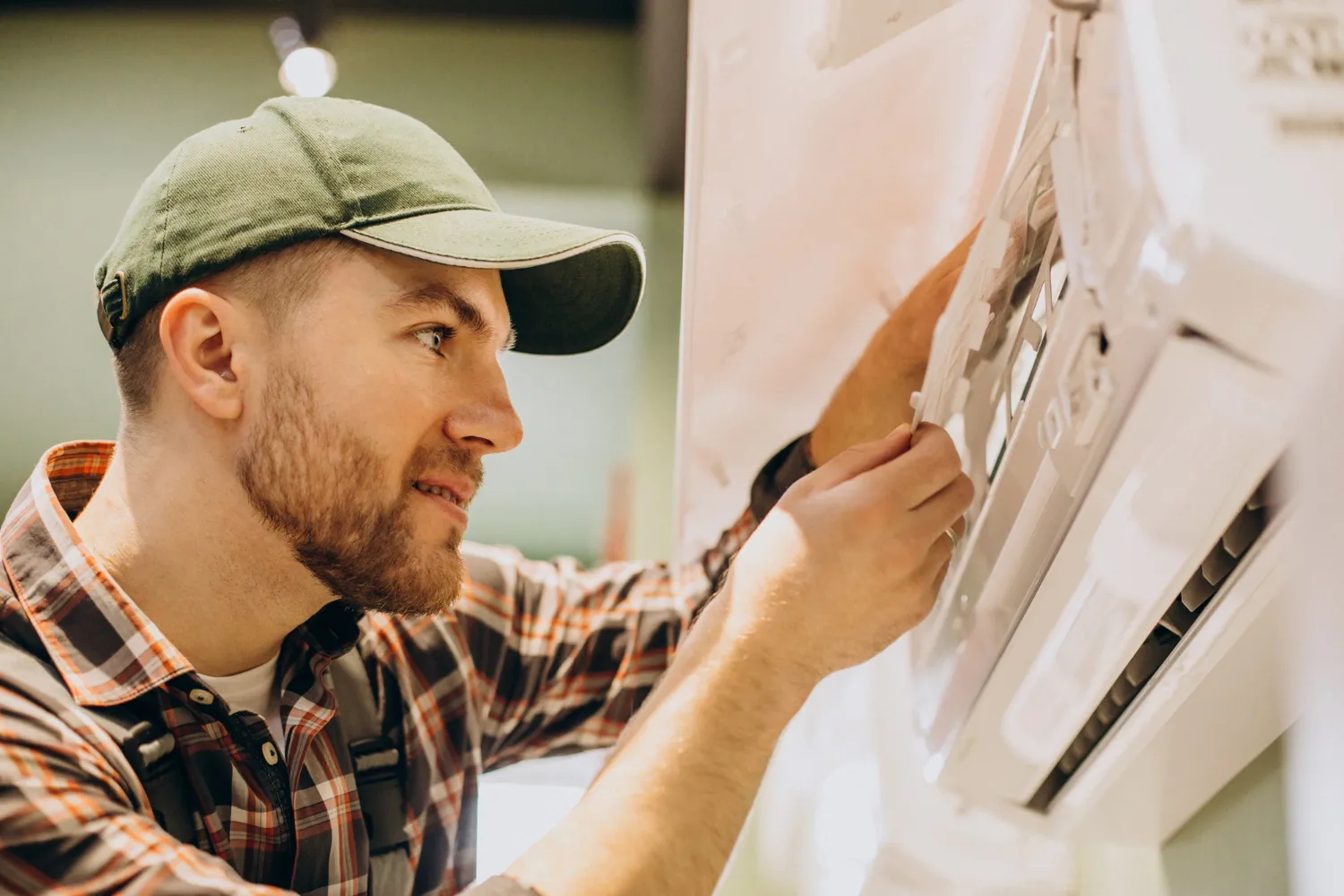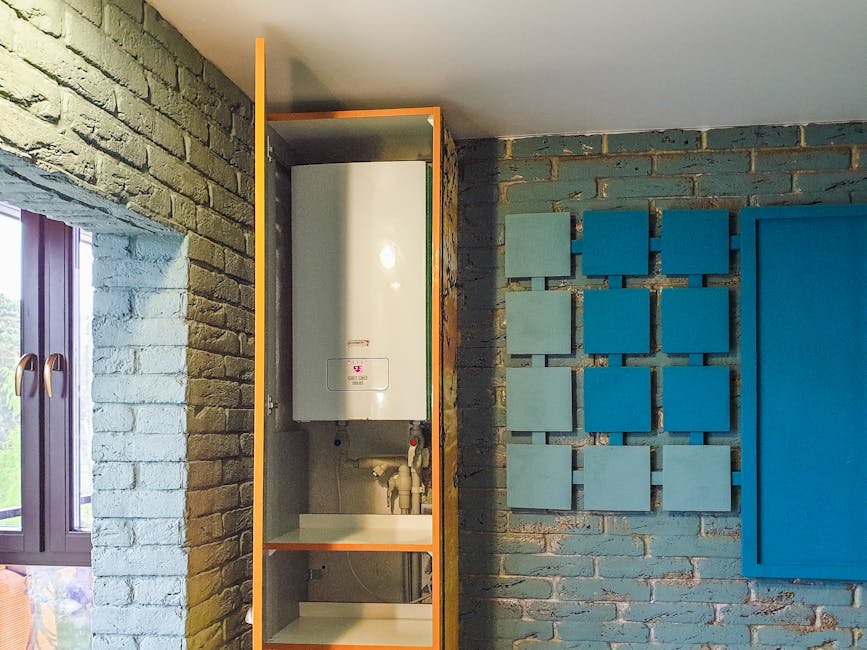Menu
If it's been awhile since you last turned on your air conditioner, there's some things to inspect to make sure it's working properly.

As the temperatures climb over the spring and summertime, it's definitely warm enough to consider turning on your air conditioner. If it has been a long time since you turned on your AC unit, it will require some consideration to ensure that your system is in proper working order.
7 Essential HVAC Checks for Your Pre-Season AC Startup
1. Thermostat
Is there any kind of damage to your thermostat? If so, you might want to consider upgrading to an energy-efficient programmable thermostat to maintain your residence at a comfortable temperature while conserving money on utilities.
Check thermostat positioning with a professional heating and cooling specialist also. Your thermostat must be placed 150 centimeters in the air, away from warm sources such as a warm window, a cooktop, and so on.
2. Condenser
Your air conditioning unit's external condenser device has continued to be inactive for months-- and in the middle of wintertime! Consequently, this leaves dirt, and other debris that might have clogged the AC. Therefore, the condenser has to be cleaned and also discharged of any water.
3. Circuit Board
Last fall, you might have switched off the circuit breaker for your outside device. You'll need to turn it on again this springtime, ideally 24 hours prior to utilizing your air conditioning for the very first time.
If you intend to turn it on yourself, you can. Nevertheless, if you notice a problem with the circuit or aren't sure which control is for the outdoors unit, contact one of our specialists for cooling service.
4. Evaporator Coils
Evaporator coils are in charge of eliminating warmth from the air entering your air conditioning system. It's necessary to have the coils cleaned up a minimum of once per year. If you don't they can squander power and create troubles like a frequently running AC system.
5. Cooling Agent Level
An additional crucial component of prepping your ac system for the season includes inspecting the cooling agent degree, which is the liquid that evaporates and also condenses throughout the cooling cycle. Your air conditioning's refrigerant degree will go down if there's a leakage somewhere in the system. So before the cooling agent is topped off, the leakage needs to be taken care of.
6. Air Filter
Check the filter before turning on your ac unit for the season. To allow correct airflow, the air filter should be cleansed as well as unclog. We recommend evaluating your air filters every thirty days if you utilize your central heating and cooling system frequently. At a minimum, change the filter every three months.
7. Blower
The blades of the blower fan must be brushed up and afterward wiped clean. After that, tighten up the installing nuts and also grease the motor if required.
After that, you'll want to switch on your air conditioning unit to check that every little thing is functioning correctly. Give it a couple of minutes of running so you can pay attention to any unforeseen noises. If you listen to something unusual, give us a call or schedule an appointment online today!





